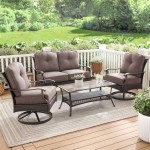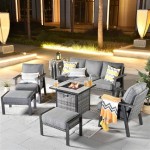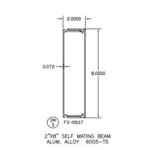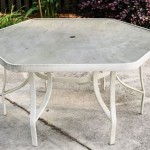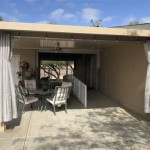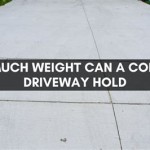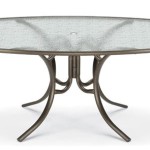Shade Screens For Patios: Enhancing Outdoor Living Spaces
Shade screens for patios are increasingly popular additions to residential and commercial properties, offering a versatile solution for managing sunlight, enhancing privacy, and improving the overall comfort of outdoor living spaces. These screens, designed to filter sunlight while allowing for airflow, provide a tangible reduction in heat and glare, making patios more enjoyable during warm weather.
The application of patio shade screens extends beyond mere comfort. They also contribute to energy efficiency by reducing the amount of solar heat gain that enters adjacent interior spaces. This can lead to lower cooling costs, particularly during peak summer months. Furthermore, shade screens can protect outdoor furniture and décor from fading and damage caused by prolonged exposure to the sun's ultraviolet (UV) rays.
This article examines the various aspects of patio shade screens, encompassing their types, benefits, installation considerations, and maintenance requirements. Understanding these factors allows property owners to make informed decisions when selecting and implementing shade screens to optimize their outdoor living experiences.
Types of Patio Shade Screens
The market offers a diverse range of shade screen options, each characterized by distinct materials, functionalities, and aesthetic qualities. Selecting the appropriate type hinges on individual needs and preferences, factoring in considerations such as the level of shade required, desired privacy, budget constraints, and the overall design of the patio and surrounding architecture.
Retractable Screens: These screens offer a high degree of flexibility, allowing users to adjust the level of shade and privacy as needed. They can be manually operated or motorized for added convenience. Retractable screens are typically housed in a protective casing when not in use, shielding them from the elements and prolonging their lifespan. They represent a significant investment but are valued for their adaptability and durability.
Fixed Screens: Fixed shade screens, as the name suggests, are permanently installed in a specific location. They offer a consistent level of shade and privacy but lack the adjustability of retractable models. Fixed screens are often constructed from durable materials such as aluminum or woven fabrics and can be customized to fit specific dimensions and design requirements. They provide a cost-effective solution for areas where consistent shade is desired.
Roller Shades: Similar to interior window roller shades, these screens can be rolled up or down to control the amount of sunlight entering the patio. They are generally more affordable than retractable screens but may not offer the same level of wind resistance or durability. Roller shades are a good option for patios that are partially sheltered or experience less frequent exposure to harsh weather conditions.
Solar Shades: Specifically designed to block a significant percentage of UV rays, solar shades are an excellent choice for protecting furniture and reducing glare. They are typically made from tightly woven fabrics that allow for airflow while minimizing heat transfer. Solar shades are available in various opacities, allowing users to select the level of shade that best suits their needs.
Privacy Screens: These screens are designed to provide maximum privacy while still allowing for airflow and some level of light penetration. They are often made from denser materials or feature intricate patterns that obscure visibility. Privacy screens are ideal for homeowners who want to create a secluded outdoor space.
Benefits of Installing Patio Shade Screens
The advantages of installing shade screens on patios are multifaceted, contributing to enhanced comfort, improved energy efficiency, and increased property value. These benefits extend beyond the immediate enjoyment of the outdoor space, positively impacting the homeowner's well-being and financial bottom line.
Reduced Heat and Glare: The primary benefit of shade screens is their ability to reduce the amount of solar heat and glare that enters the patio area. By filtering sunlight, these screens create a cooler and more comfortable outdoor environment, making it possible to enjoy the space even during the hottest parts of the day. This reduction in heat also minimizes the fading and damage to outdoor furniture and décor.
Increased Privacy: Shade screens can significantly enhance privacy, particularly in densely populated areas. By obscuring visibility from neighboring properties or public spaces, these screens create a more secluded and intimate outdoor environment. This increased privacy allows homeowners to relax and enjoy their patio without feeling exposed or overlooked.
Energy Efficiency: By blocking solar heat gain, shade screens can reduce the demand on air conditioning systems, leading to lower energy consumption and reduced utility bills. This effect is particularly noticeable in homes with large windows or glass doors facing the patio area. The reduced heat load also helps to maintain a more consistent temperature inside the home, further enhancing comfort.
Protection from UV Rays: Prolonged exposure to UV rays can be harmful to both skin and eyes. Shade screens, especially those made from solar fabrics, can block a significant percentage of these harmful rays, providing a safer outdoor environment for family and guests. This protection is particularly important for individuals who are sensitive to sunlight or spend extended periods outdoors.
Extended Outdoor Season: By creating a more comfortable outdoor environment, shade screens can extend the usability of the patio into the shoulder seasons (spring and fall). This allows homeowners to enjoy their outdoor space for a longer period of time, increasing the overall value and enjoyment of their property.
Aesthetic Enhancement: Shade screens can also enhance the aesthetic appeal of a patio, adding a touch of style and sophistication. They are available in a wide range of colors, patterns, and materials, allowing homeowners to customize the look of their outdoor space to match their personal preferences and the overall design of their home.
Installation Considerations for Patio Shade Screens
Proper installation is crucial for ensuring the optimal performance and longevity of patio shade screens. Careful planning and attention to detail are essential to avoid common problems such as sagging, tearing, or improper operation of retractable mechanisms. It is often advisable to consult with a professional installer to ensure that the screens are installed correctly and securely.
Structural Integrity: Before installing shade screens, it is important to assess the structural integrity of the patio and surrounding areas. The screens need to be securely anchored to a solid foundation, such as the patio roof, walls, or posts. If the existing structure is not strong enough to support the weight and wind load of the screens, reinforcement may be necessary.
Accurate Measurements: Precise measurements are essential for ensuring a proper fit. Incorrect measurements can lead to gaps, uneven coverage, or difficulty in operating retractable mechanisms. It is advisable to use a professional measuring service or to take measurements multiple times to ensure accuracy.
Material Selection: The choice of materials should be based on factors such as climate, exposure to sunlight and wind, and desired level of privacy. Durable, weather-resistant materials such as aluminum, stainless steel, and high-quality fabrics are recommended for long-term performance. Consider fabrics rated for UV resistance and fade resistance, especially in areas with intense sun exposure.
Professional Installation: While some homeowners may be tempted to install shade screens themselves, professional installation is often the best option, particularly for retractable or motorized models. Professional installers have the expertise and tools to ensure that the screens are installed correctly and securely, minimizing the risk of future problems. Furthermore, they can provide valuable advice on maintenance and care.
Local Building Codes: It is important to check local building codes and regulations before installing shade screens. Some municipalities may have restrictions on the size, type, or placement of outdoor structures. Obtaining the necessary permits can help to avoid potential fines or legal issues.
Accessibility and Maintenance: When planning the installation, consider the accessibility of the screens for maintenance and cleaning. Ensure that there is sufficient space to access the mechanisms and fabrics for regular cleaning and repairs. Retractable screens should be easily accessible for lubrication and adjustments.
Drainage: Proper drainage is essential to prevent water damage to the screens and surrounding structures. Ensure that rainwater can drain away from the screens and that there are no areas where water can accumulate. Consider installing gutters or other drainage systems to manage rainwater runoff.
Wind Resistance: In areas with high winds, it is important to select shade screens that are designed to withstand strong gusts. Look for screens with reinforced frames and durable fabrics that are less likely to tear or sag. Consider using wind sensors that automatically retract the screens when wind speeds exceed a certain threshold.
Motorization and Automation: For added convenience, consider motorizing the shade screens. Motorized screens can be operated with a remote control or integrated into a smart home system, allowing for automated control based on time of day or weather conditions. However, motorization adds to the overall cost and complexity of the installation.
Warranty: Always check the warranty offered by the manufacturer or installer. A comprehensive warranty can provide peace of mind and protect against potential defects or malfunctions. Read the warranty carefully to understand the terms and conditions.
By carefully considering these installation factors, homeowners can ensure that their patio shade screens are installed correctly, function optimally, and provide years of enjoyment.

Retractable Exterior Solar Screen Nationwide Sunair Awnings

Roller Shades Coolaroo

Retractable Exterior Solar Screen Nationwide Sunair Awnings

Large Heavy Duty Outdoor Solar Shades North Screen

Retractable Exterior Solar Screen Nationwide Sunair Awnings

Outdoor Shade Options For 2024 Universal Patio Shades

Exterior Shades Screenmobile

Retractable Exterior Solar Screen Nationwide Sunair Awnings

Carmel Patio Screens Na Shades Universal

Outdoor Shades Houston Phantom Sun The Shade
Related Posts

